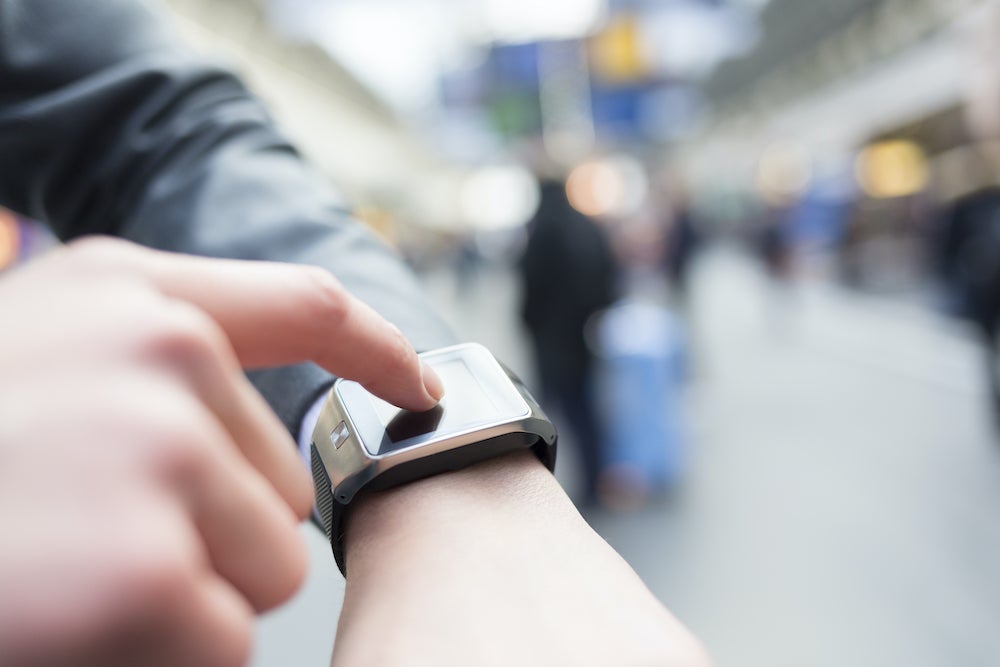
Wearable tech is an emerging sub-market in the Internet of Things (IoT) theme but has yet to establish itself in the IoT mainstream, due to limited interoperability and underdeveloped self-contained functionalities.
Some technology experts believe wearables will be the next big consumer technology, with an impact similar to that of the smartphone. This is largely nonsense: wearables just do not have the same breadth of functionality to deliver the diverse range of services available on smartphones. However, the wearables market is still an interesting segment, which is growing differently in Asia-Pacific (APAC) than the rest of the world. Demand for fitness trackers is growing in APAC, while their sales in North America and Europe are declining. Smartwatches are gaining traction, but driven by the emergence of low-cost Chinese products. In terms of regulations, APAC is still far from adopting the EU’s GDPR standard, which makes the region an attractive market for wearable vendors keen to exploit customer data.
Smartwatches overtake fitness trackers
Competition in wearable tech is primarily a face-off between US and Chinese tech giants. Apple is the dominant player, thanks to the success of the Apple Watch, and its strong position in the wearables segment, where AirPods are the market leader. Smartwatches are now the dominant wearable tech segment, while fitness trackers promising much less today than they did four years back. Fitness trackers are losing out to smartwatches when it comes to sales, but daily usage rates (at least in mature economies) are on the rise. Many fitness tracker companies are exploring growth opportunities in healthcare services. Google’s acquisition of Fitbit in 2019, in some parts, is attributed to the Fitbit’s stronghold in the US healthcare services market.
Asia-Pacific is a lucrative market
Emerging markets, especially in APAC, present the strongest growth opportunities for wearables. But in the key markets of China and India, global leaders face increased competition from domestic manufacturers. The region’s large numbers of price-sensitive consumers often cannot afford the most expensive smartwatches. Fitness trackers are often seen as a cheap alternative. Indian manufacturer Titan’s fitness tracker is a prominent challenger to Google’s Fitbit. While many consumers cannot afford the latest Apple Watch, there is an untapped demand for cheaper smartwatches. Chinese brands such as Xiaomi, Huami and Huawei, with less-expensive smartwatch models, are aiming for growth in this space. However, Apple is anticipated to lead by revenue, due to the premium-priced Apple Watches, and a growing dedicated customer base in the region.
New types of wearables are emerging
Wearable tech such as wireless, in-ear headphones and smart glasses are gaining significant media attention. Wearable vendors are investigating expanding use cases from listening to music and taking voice calls, into fitness monitoring. Some believe that wearables could exceed smartwatch performance for health monitoring services. Consumer adoption of smart glasses remains low, attributed to consumer ambivalence that stems from high-cost, privacy concerns, and limited use cases.
Don’t ignore regulations
Wearable tech collect significant amounts of personal data, which makes them targets for regulators. Compelled by the EU’s General Data Protection Regulation (GDPR), wearable vendors such as Strava, Fitbit, Garmin, and Oculus have redesigned their privacy policies. Vendors with transparent data policies will gain consumer trust and this will, in turn, drive sales of their devices. APAC is fairly relaxed in terms of data privacy laws, and more wearable vendors will seek expansion in this market over the next two years. Yet, companies will have to be prepared to comply with emerging and increasingly stringent domestic regulations that (most likely) will vary from one country to another.
How well do you really know your competitors?
Access the most comprehensive Company Profiles on the market, powered by GlobalData. Save hours of research. Gain competitive edge.

Thank you!
Your download email will arrive shortly
Not ready to buy yet? Download a free sample
We are confident about the unique quality of our Company Profiles. However, we want you to make the most beneficial decision for your business, so we offer a free sample that you can download by submitting the below form
By GlobalData






Related Company Profiles
Apple Inc
Garmin Ltd
Xiaomi Inc
Fitbit Inc
Google LLC